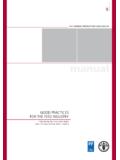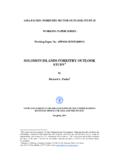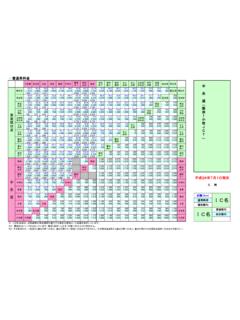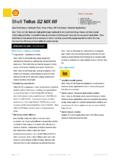Transcription of Advantages and disadvantages of survey methods
1 Advantages and disadvantages of survey methods survey Advantages disadvantages type Mail Easy and cost efficient Response rates are typically low No interviewer, respondents may be more willing to Not appropriate for low literacy audiences share information No interviewer, respondents cannot be probed Phone Large scale accessibility in many countries Lack of visual materials Rapid data collection, particularly with the integration Call screening is common of CATI (computer assisted telephone interviewing) Limited open-end questions or time constraints due to more limited systems survey length Quality control Wariness Anonymity Inattentiveness Flexibility Online Low costs Limited sampling and respondent availability. Automation and real-time access Possible cooperation problems Less time needed No interviewer, respondents cannot be probed Convenience for respondents Design flexibility, surveys can be programmed even if they are very complex.
2 No interviewer, respondents may be more willing to share information Face to Good response rates Expensive Face Longer interviews more likely to be tolerated Time-consuming Attitude can be observed May produce a non-representative sampl
















